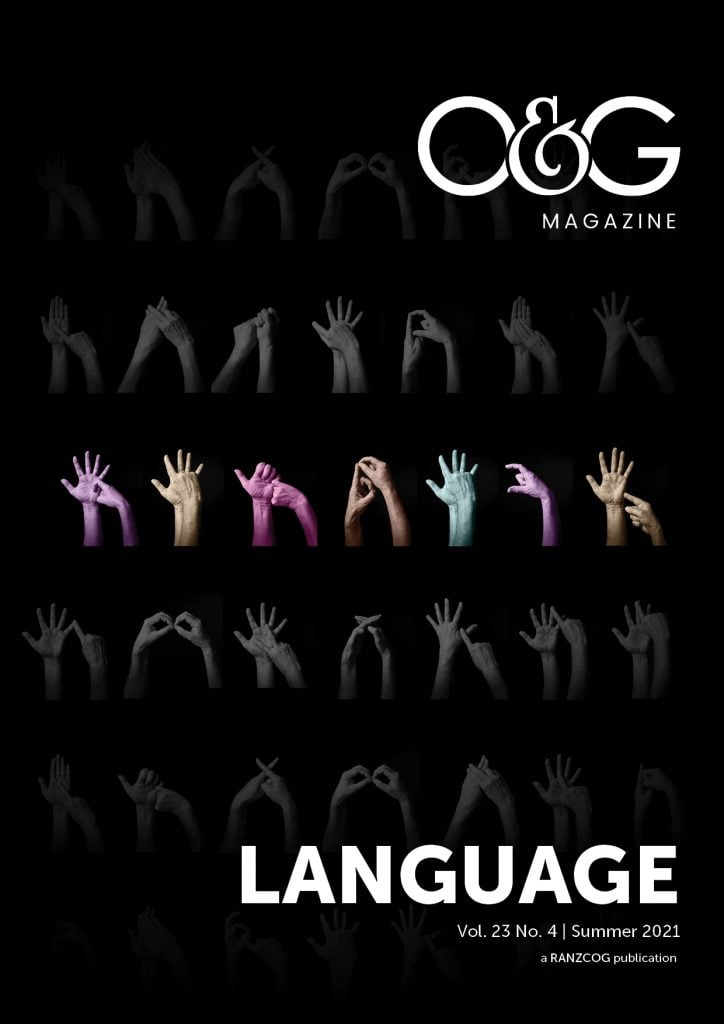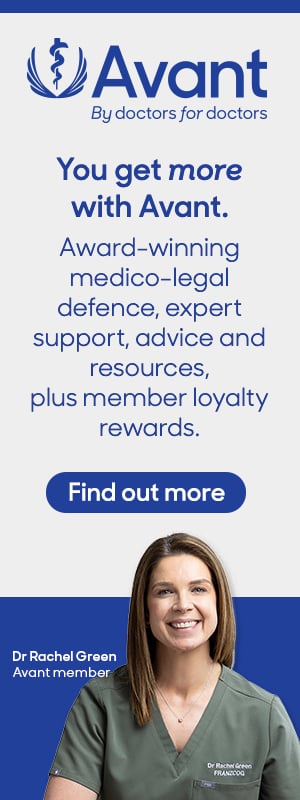In November 2019, following feedback from the Trainees Committee, the College Education Strategy Committee approved a recommendation to update our formal training on communication skills. Prior to that, training was delivered by an external agency, and the decision was taken to develop an in-house Communication Skills Workshop, tailored to our own specific needs as a professional group. Work on that project began in 2020, and the new course has been piloted this year.
An essential component of the design of the new workshop was feedback from our junior workforce around areas of communication that they find difficult. In this article, Dr Pradeep Ruba, a junior doctor in obstetrics and gynaecology in Perth, raises some of the key issues presented in trainee feedback, and we discuss how the new workshop has sought to address those concerns.
Pradeep
Good communication skills are vital in our daily life as doctors, and a key component to reducing errors and ensuring patient safety is promoting good communication with patients and effective communication between healthcare professionals. Will the new course aim to improve doctor-patient communication as well as communication between healthcare professionals?
Response
The new Communication Skills Workshop has been designed with two separate modules: communication with patients and communication with colleagues. Although many communication skills cross both of those domains, we wanted to highlight that the challenges trainees face in those two arenas can be different, and to present the course participants with opportunities to discuss their own experiences in both. The new course incorporates some useful strategies and tips, and gives the trainees the opportunity to practice some specific scenarios in both patient and colleague communication.
Pradeep
Breaking bad news is a skill that is relevant in all fields of medicine, but in obstetrics it can be particularly challenging. The expectations of the parents are that they will leave hospital with a healthy baby. However, this is not the case when, for example, a diagnosis of stillbirth is made. How the diagnosis of stillbirth is communicated has a profound and long-term impact on parents, who value open, sensitive and honest communication with an emphasis on language and environment. The care parents receive at the time of perinatal bereavement can shape their entire grieving process and negative experiences can worsen what is already an incredibly difficult time. Junior doctors can also experience added difficulty when the diagnosis of stillbirth is not 100% certain and follow-up imaging is required. Does the new course address breaking bad news in situations specific to obstetrics?
Response
Everyone finds breaking bad news difficult, and trainees often have anxieties around their ability
to do this. The updated workshop discusses breaking bad news in both obstetric and gynaecological settings, provides some useful mnemonics to help structure these sorts of conversations, and gives the course participants a chance to reflect on their own experiences in this area. The course also includes an opportunity to practice these skills in a safe way using roleplay. Feedback from the pilot courses has suggested that, whilst not everyone enjoys roleplay, the trainees find these discussions very useful – particularly the opportunity to share their own experiences.
Pradeep
What about the difficult situation of communicating with a patient who does not want to follow our advice? Pregnancy and birth are not usually pathological processes requiring medical care, and sometimes the advice we give may not be acceptable to an expectant mother. Conveying our concerns often requires high-level interpersonal and communication skills since there is often no good evidence to recommend a particular management option over another. Junior doctors can find this a particularly difficult area – will the course cover this?
Response
One of the key areas covered in the workshop is how to address patient expectations. The course covers some of the key components of effective communication, including how to assess what the patient wants to know, and how to explore emotional responses. We have used videos which have been scripted and filmed by junior doctors, so that the scenarios used to scaffold these discussions are both familiar and relevant to the workshop participants.
Pradeep
There are many barriers to effective communication including time constraints and understaffing. Source credibility is a barrier to effective communication as
it highlights the importance of the trainees’ knowledge, experience, and interpersonal skills when delivering information and counselling patients. The many preconceived ideas and expectations patients have may also pose as barriers to effective communication with patients. For example, the firm expectation of an uncomplicated vaginal birth of a 4.5kg fetus may hamper efforts to counsel women on making an informed decision about mode of delivery. Does the course cover overcoming these barriers to effective communication?
Response
The new course has some great resources around the topic of barriers to communication. There is a lot to cover in this area, so the workshop includes some pre-reading that acts as a trigger for the opening discussions during the course. Trainees bring their own perspectives and the pilot workshops have included some really insightful reflections from the trainees around the barriers they perceive, and how they have worked to overcome them.
Pradeep
Hierarchy is very apparent in the medical profession and junior doctors have expressed difficulty raising concerns about patient management for example, to senior colleagues who may not always receive this well. Does the course provide tools to equip trainees with the confidence to appropriately escalate their concerns if required?
Response
The new workshop covers lots of different areas around communication with colleagues, including some tools that can be used to frame conversations where graded escalation is required. The course takes participants through several scenarios, where they are required to lead a difficult conversation (for example, in giving negative feedback), or where they are required to respond to a challenging communication (for example, dealing with aggression). Again, new resources including videos scripted and created by junior doctors have been developed, really putting the trainee experience at the centre of the learning experience.
Conclusion
The updated Communication Skills Workshop has been piloted with two groups of online participants including first- and second-year trainees from around Australia and facilitated by Jenny Beale, Katrina Calvert, Jeremy Chin and Tim Hasted. We are currently looking at the course evaluations and feedback for the pilot, in order to make sure that the course is meeting the needs of our trainees before we roll it out officially. The Communication Skills Workshop development team will continue to actively seek the input of the most important group in determining the future direction of this training – the junior doctors at whom the training is targeted.
Our feature articles represent the views of our authors and do not necessarily represent the views of the Royal Australian and New Zealand College of Obstetricians and Gynaecologists (RANZCOG), who publish O&G Magazine. While we make every effort to ensure that the information we share is accurate, we welcome any comments, suggestions or correction of errors in our comments section below, or by emailing the editor at [email protected].







Leave a Reply